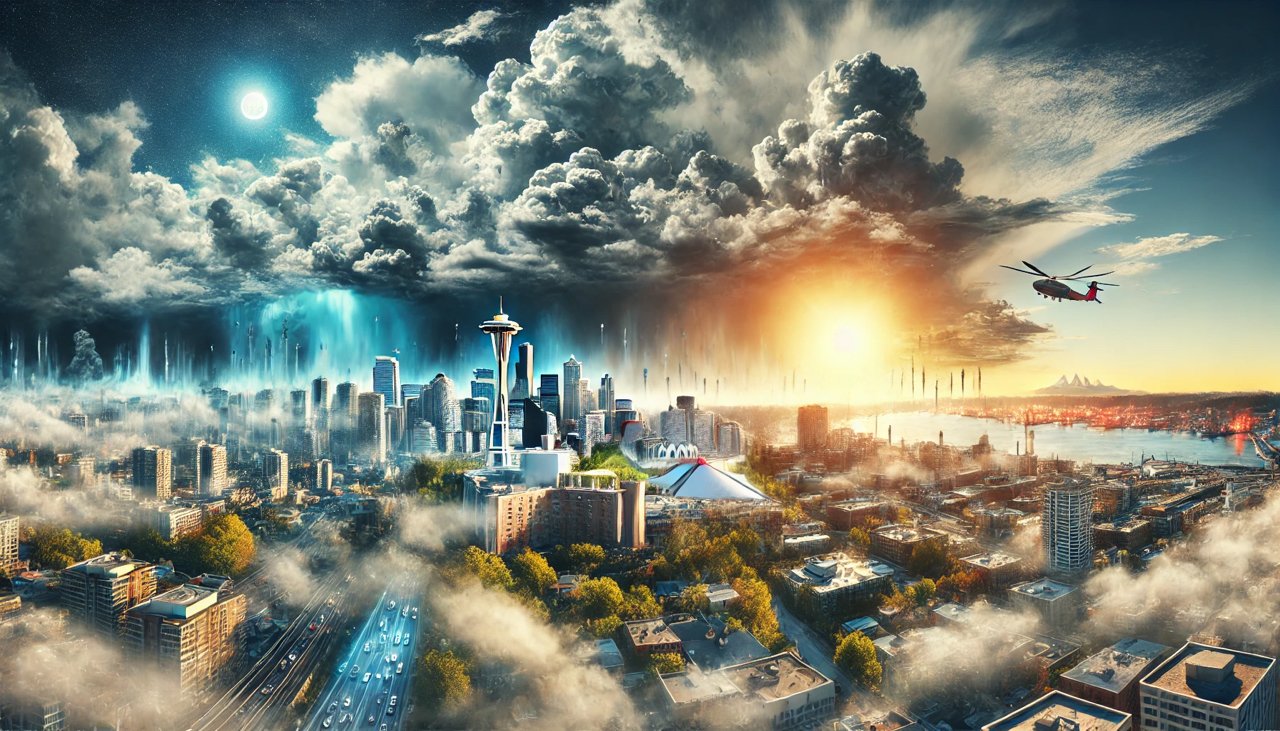What will Seattle weather be like in 2050?
The most common question asked by any resident of Seattle looks toward the future. What will the weather be like in the year 2050? Global climate changes are influential in weather patterns, and Seattle is not an exception. This blog shall discuss the expected changes in temperature, precipitation, and overall climate conditions in Seattle by 2050, taking into consideration how residents may adapt to change.
Seattle Climate Projections
Seattle's climate is, by definition, temperate maritime. As such, it is milder wet winters and warmer, dryer summers. That being said, by the year 2050, it would have changed much from these trends. From the analysis of various climate models applied to Seattle's temperatures yearly, they could be set to rise at approximately 3 to 5 degrees Fahrenheit. This could lead to even hotter and more frequent heat waves. There could be more days above 85°F in a year, and that average is expected to rise from the current 7 days to around 28 days by mid-century.
For rain, the city is forecasted to have an slight rise in yearly precipitation from about 35.4 inches to almost 38 inches. This percentage of its rainfall due to heavy downpouring events is forecasted to rise from 43% to nearly 49% by 2050. This would indicate that though the actual quantity of precipitation may be going up, it's probable that it will result from fewer but more concentrated events that cause flooding issues with stormwater management.
Local ecosystems would be affected in the following ways:
The anticipated trends in changing climate will likely dramatically alter regional ecosystems. One will likely witness reductions in Cascadian snow packs at specific warming levels. As that not only impacts their availability into summertime for both fishery and livestock operations, local wildlife would also decline, as vegetation associated with its melting schedule are drastically changed. More frequent intensification of raining episodes may possibly increase hazards on flooding by creating overflowing volumes in Capitol Hill or neighborhoods nearby.
Moreover, the warming climate may alter the seasonality of flowering and migration for many species. As temperatures rise and precipitation patterns shift, local flora and fauna may not adapt fast enough, which could cause a disruption in the balance of the ecosystem.
Adapting to Change
As Seattle prepares for these climatic shifts, the residents have to take steps forward proactively. In the impact of climate change, community resilience will play a role. Strategies that can be adopted here are as follows:
1. Emergency Preparedness: Residents should always keep emergency kits stocked up with food, water, and flashlights. Preparedness for potential flooding or a power outage will be more important as weather events will become extreme.
2. Home Maintenance: Home owners can maintain homes with proper upkeep, which could prevent a lot of destruction when severe weather hits. Support from cleaning and maintenance service providers such as Seattle Green Maids could aid in ensuring safety and preparation in a stormy climate.
3. Community Involvement: A member of local community groups involved in climate resilience initiatives could access the necessary tools and knowledge on how to prepare for changes in the weather.
4. Same Day Cleaning Services: After the heavy downpour or storm, using same day cleaning services will help clean houses quickly and effectively so as to be able to get back into a house with a safe living environment.
Conclusion
Sooner as we approach the year 2050, much that had been attributed to this long history associated with the city of Seattle as characterizing a temperate maritime climate stands to change. Its rising temperatures and increased intensities of precipitation are issues with which its people ought to be addressing proactively. Understanding such projections with step[s] taken toward adapting it can be done if you engage services like the ones offered by Seattle Green Maids towards preparation for this future dented by climate change.
The impacts of a warming climate ultimately will be overwhelming. These changes, however present new opportunities for communities to learn together and grow to strength against the effects that it will bring. Well-versed and engaged community residents can ensure Seattle endures as a livable space even as its climate adapts over the years.
